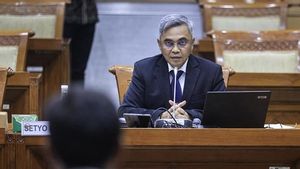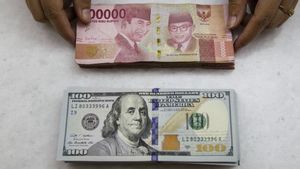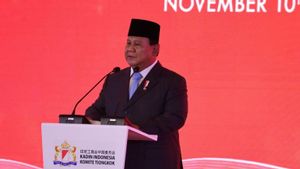JAKARTA - Economic researcher at the Center of Reform on Economics (CORE) Indonesia Yusuf R Manilet estimates that BI will maintain the policy of the benchmark interest rate or BI-Rate at the level of 6.25 percent.
"I think BI will still be in a position to see the situation and conditions, and therefore will maintain the policy of the benchmark interest rate at the same level and not raise it especially for the governor's board meeting in May 2024," Yusuf said as quoted by ANTARA, Wednesday, May 22.
He said BI's decision to raise the benchmark interest rate at the BI Board of Governors meeting in April 2024, the impacts given began to be felt, especially in the short term.
The depreciation of the rupiah exchange rate that had occurred and touched the psychological level of Rp. 16,000 per US dollar at that time had started to slope and returned to the level of Rp. 15,000.
"This is one of the short-term impacts given from the increase in BI's benchmark interest rate in the previous period," said Yusuf.
However, there are still challenges that BI will face, especially in ensuring the stability of the rupiah exchange rate. One of these challenges is the trade balance which has the potential to shrink its surplus and in general the balance of payments that have returned to a deficit in the first quarter of 2024.
Based on data from the Central Statistics Agency (BPS), Indonesia's trade balance surplus continued in April 2024 at US$3.56 billion, lower than the surplus in March 2024 of US$4.58 billion.
Indonesia's balance of payments (NPI) in the first quarter of 2024 recorded a deficit of 6.0 billion US dollars and the position of foreign exchange reserves at the end of March 2024 was recorded to remain high at US$ 140.4 billion, or equivalent to financing 6.2 months of imports and payment of government foreign debt, and was above the international standard of approximately three months of imports.
SEE ALSO:
Meanwhile, the chance for a BI-Rate reduction in 2024 will be determined by how capable the benchmark interest rate policy can reduce problems such as the exchange rate in the remainder of 2024.
"Because once again what is of concern from BI is the increase in prices which can then arise from the depreciation of the rupiah exchange rate," he said.
On the other hand, factors from the benchmark interest rate of the United States (US) or the Fed will also affect BI's decision to reduce or maintain the BI-Rate.
"As long as the Fed does not adjust the benchmark interest rate, BI's chances of lowering the benchmark interest rate are also relatively smaller," he said.
The English, Chinese, Japanese, Arabic, and French versions are automatically generated by the AI. So there may still be inaccuracies in translating, please always see Indonesian as our main language. (system supported by DigitalSiber.id)
















